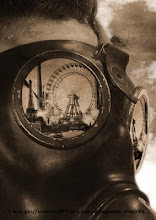Although Islam is at its heart a religion that spreads peace and happiness, a few people use it to justify acts of extreme violence against innocent people. In so doing, these criminals not only achieve the exact opposite of whatever their political or moral motivations, but also produce a heinous and violent image of Islam. This image affects the vast majority of followers who are peaceful, and creates conflict between people and cultures.
I think the most effective and productive way to stop these acts of violence would be if the imams of the major currents of Islam united to excommunicate all those who commit these crimes. This would be a clear statement that such acts of violence and terror do not represent Islam, and would stop groups of violent people to use religion as a backing for crimes.
Joyeux Noël ! Merry Christmas !
10 years ago
